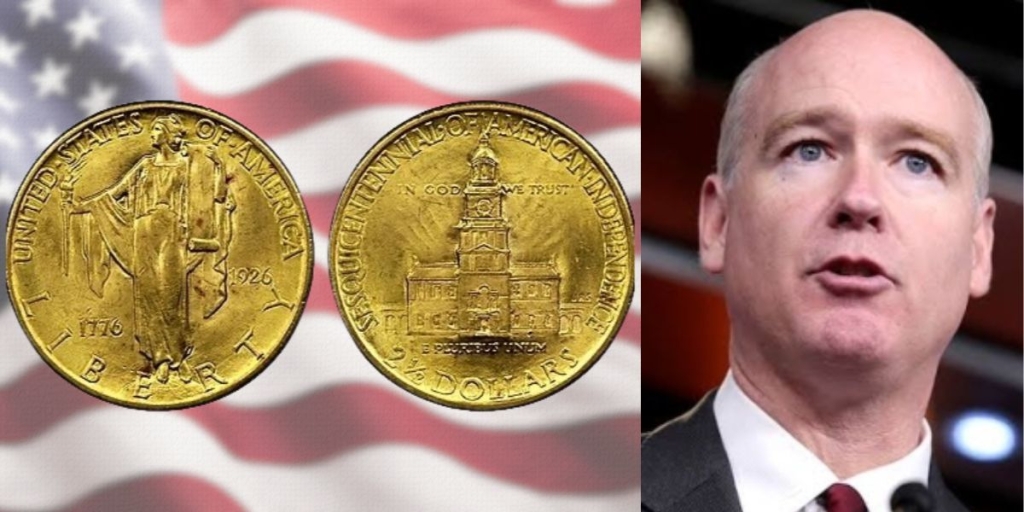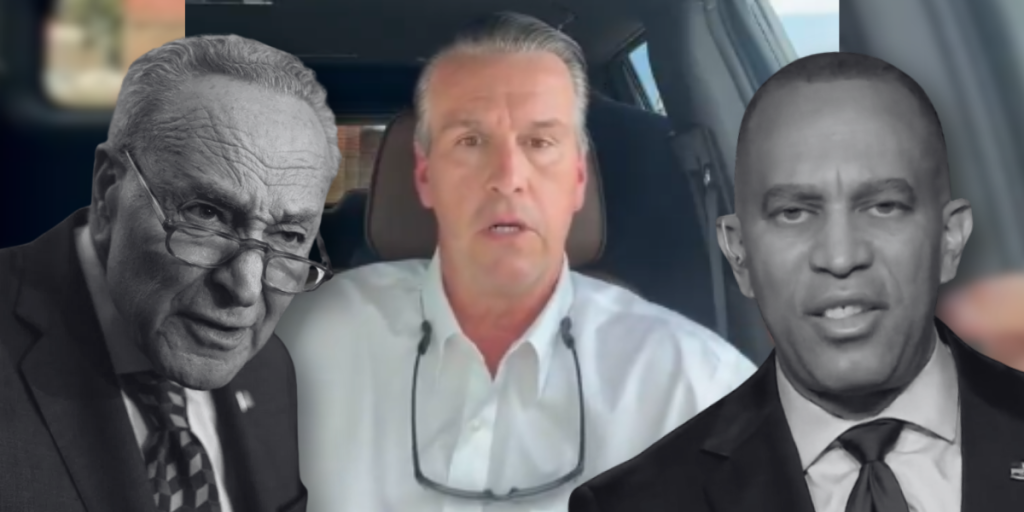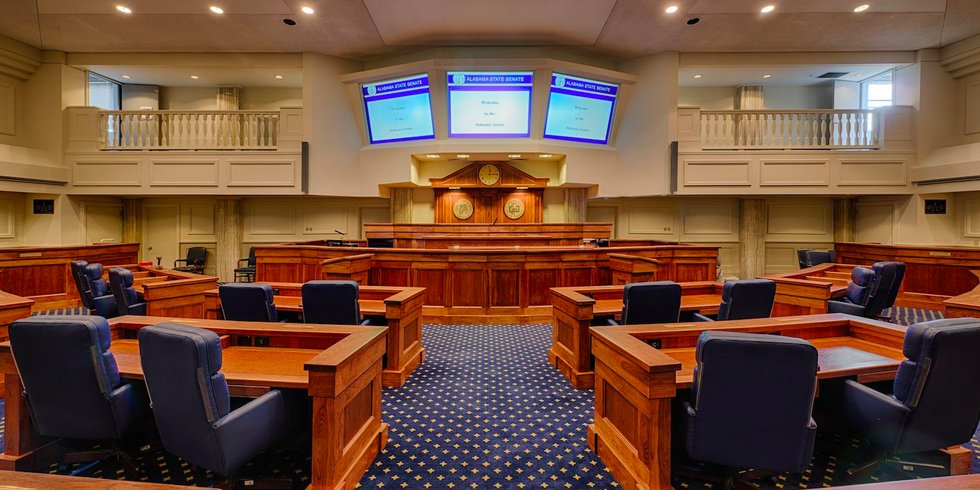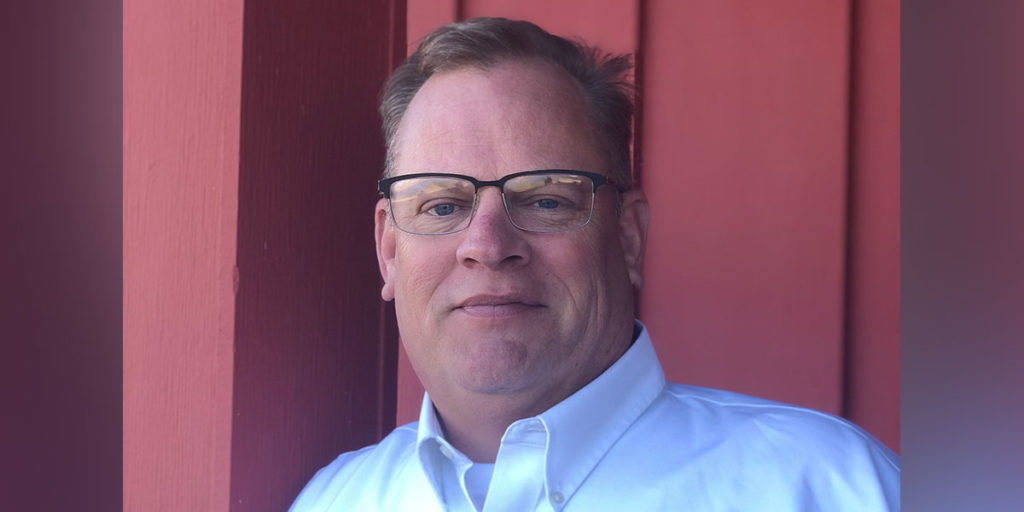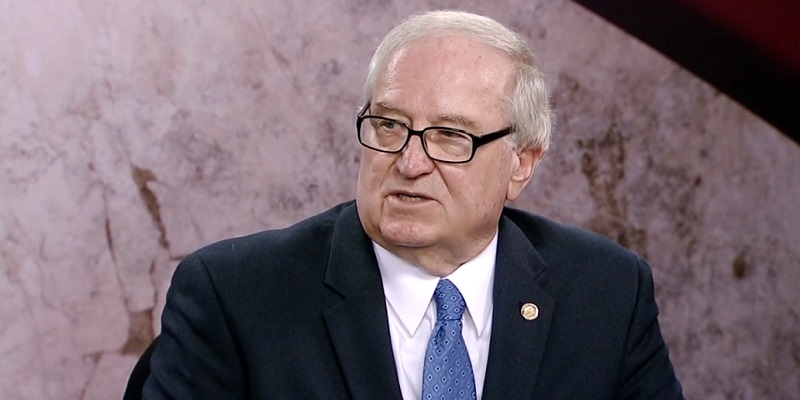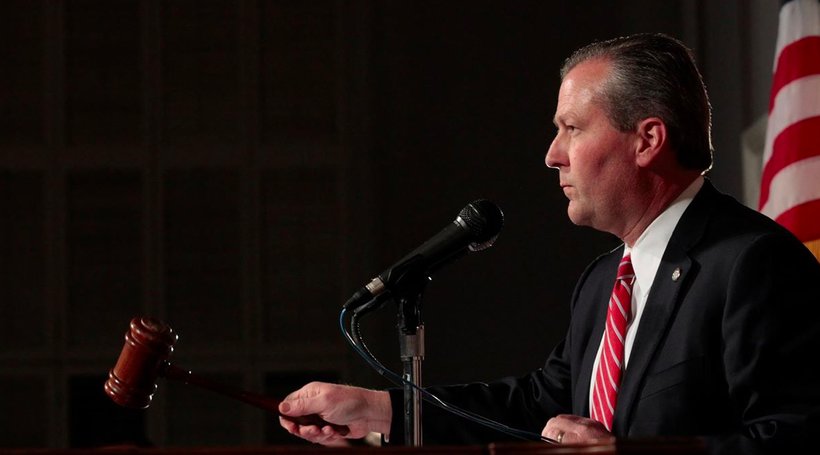
Mike Hubbard was convicted on 12 felony public corruption charges late last week, immediately prompting his removal from office as Alabama’s Speaker of the House. Such a scenario would be a seismic political event, regardless of the individual; the Speaker’s post is arguably the most powerful position in state government. But Hubbard may have been the strongest speaker to ever hold the job, meaning his ouster will now lead to a power vacuum of tectonic proportions.
His sentencing will not take place for almost a month, but the jockeying for power among his former colleagues began mere moments after the jury returned to the Lee County courtroom with a verdict.
“The corpse is still warm and the vultures are already swarming,” one House member texted less than 30 minutes after the trial’s conclusion. “It’s sad, really.”
Such a moment provides a rare, honest glimpse into the world of power politics, where naked ambition is often clothed in false humility to make it more palatable to a public that still values the appearance of reluctant leadership.
So what, and perhaps more importantly “who,” is next?
Here’s our best shot at making sense of the chaos:
1. Sentencing and uncertainty
Mike Hubbard’s sentencing will take place July 8th. He faces the possibility of spending decades behind bars, meaning there will be a lot of nervous politicos around the state wondering what Hubbard might tell prosecutors in an effort to obtain a lighter sentence.
Where does the attorney general’s office go from here? They landed the big fish they wanted, but there are still some unanswered questions.
Perhaps most notably, what will the AG’s office do about the lobbyists and the businessmen who employ them (i.e. principals) from whom Hubbard was convicted of soliciting and taking “things of value”? Do they double down and pursue charges against them, too, or do they take their victory and move on?
As of now, there are a lot more questions than answers on this front.
2. The process of electing a new Speaker of the House
Speaker Pro Tem Victor Gaston is now the acting Speaker of the House and will serve in that role until a new Speaker is elected by a vote of the full House of Representatives at the beginning of the next legislative session.
That means it could be months until a new Speaker is officially installed. Someone will, however, become the presumptive Speaker of the House before then.
House Republicans will likely convene in the coming weeks to decide who they will collectively put forward to be the next Speaker.
As of now, a handful of House members are testing the waters to see if they might have enough support to either become Speaker or to cut a deal with someone they believe could win.
3. The early favorite
The Speaker’s gavel is State Rep. Bill Poole’s (R-Tuscaloosa) for the taking, but it is unclear right now if he wants it.
The parallels between Poole and U.S. House Speaker Paul Ryan are almost uncanny.
Both are young and rose through the ranks quickly based on sheer talent and ultimately gained their colleagues’ respect as policy wonks sitting atop budget committees. Both are “consensus picks,” bridging the gap between staunch conservatives and more moderate factions, as well as between younger and older members. Both have shied away from socializing with lobbyists outside of work, opting instead to spend time with their young families. Both are viewed as an opportunity to “turn the page,” Ryan from years of Boehner’s broken promises and penchant for “punishing” Republicans who opposed him, Poole from years of Hubbard’s bullying and iron-fisted rule. Both stand out among their colleagues for their genuine reluctance to become Speaker. Both also worry that their aspirations for higher office may be derailed by taking an often thankless job that is usually the last stop in a long career, not a stepping stone for a politician with decades ahead of them.
But here’s the fact of the matter: Bill Poole will be Speaker of the House, if he wants to be, and he is the only House member who can say that right now.
His decision is made more difficult by the fact that he is a practicing attorney who has to bill hours to make a living. The Speaker’s job can be all consuming, and Poole is not one to do things halfway. He is going to have to decide whether he wants to make the personal and business sacrifices that will be necessary to do the job.
Stay tuned.
4. Other key players
If Poole decides to pass on the job, chaos and deal-making will ensue.
State Rep. Mac McCutcheon (R-Huntsville) is the next most likely candidate. He is widely respected on both sides of the aisle for his fairness as Rules Committee Chairman, but he lost the support of many staunch conservatives with his outspoken push for a gas tax this past session. Losing that bloc of votes makes it much more difficult for McCutcheon to cobble together a coalition to win. He and Poole are meeting on Monday to discuss their plans.
State Rep. Mike Jones (R-Andalusia) was one of the first out of the gate trying to wrangle support in the wake of Hubbard’s conviction. He has also had former House member and current Secretary of State John Merrill calling members on his behalf. Jones has a small group of loyalists in his camp, but is viewed with suspicion by a wide swath of the GOP caucus. He has no clear ideology and his management of the Judiciary Committee has left some members questioning whether he could handle the Speaker’s job, which is very process-oriented. His best bet may be to leverage his bloc of votes — however small it may be — to keep his seat at the Leadership table.
Other names getting tossed around include Will Ainsworth (R-Guntersville), who has the support of a chunk of staunch conservatives and may run if Poole opts out; Jim Carnes (R-Birmingham), who’s been trying to become speaker for a long time but is viewed as somewhat of a retread and just doesn’t have the base of support to pull it off; Lynn Greer (R-Rogersville), a well-liked elder statesman who could be the fallback choice if a nasty fight breaks out between other contenders; Phil Williams (R-Huntsville), a successful entrepreneur who was the only House member bold enough to challenge Hubbard directly for the job while he was still in office; Randy Davis (R-Mobile), a south Alabama businessman; and April Weaver (R-Pelham), the first woman to ever serve as chairman of the House Health Committee.
5. A new day
The Speaker’s post will remain one of the most powerful jobs in the state because of the way Alabama’s government is structured with a weak executive and strong legislature. But no matter who assumes the role, power and authority in the House is going to be much more decentralized than it was under Hubbard, and that is a good thing.




